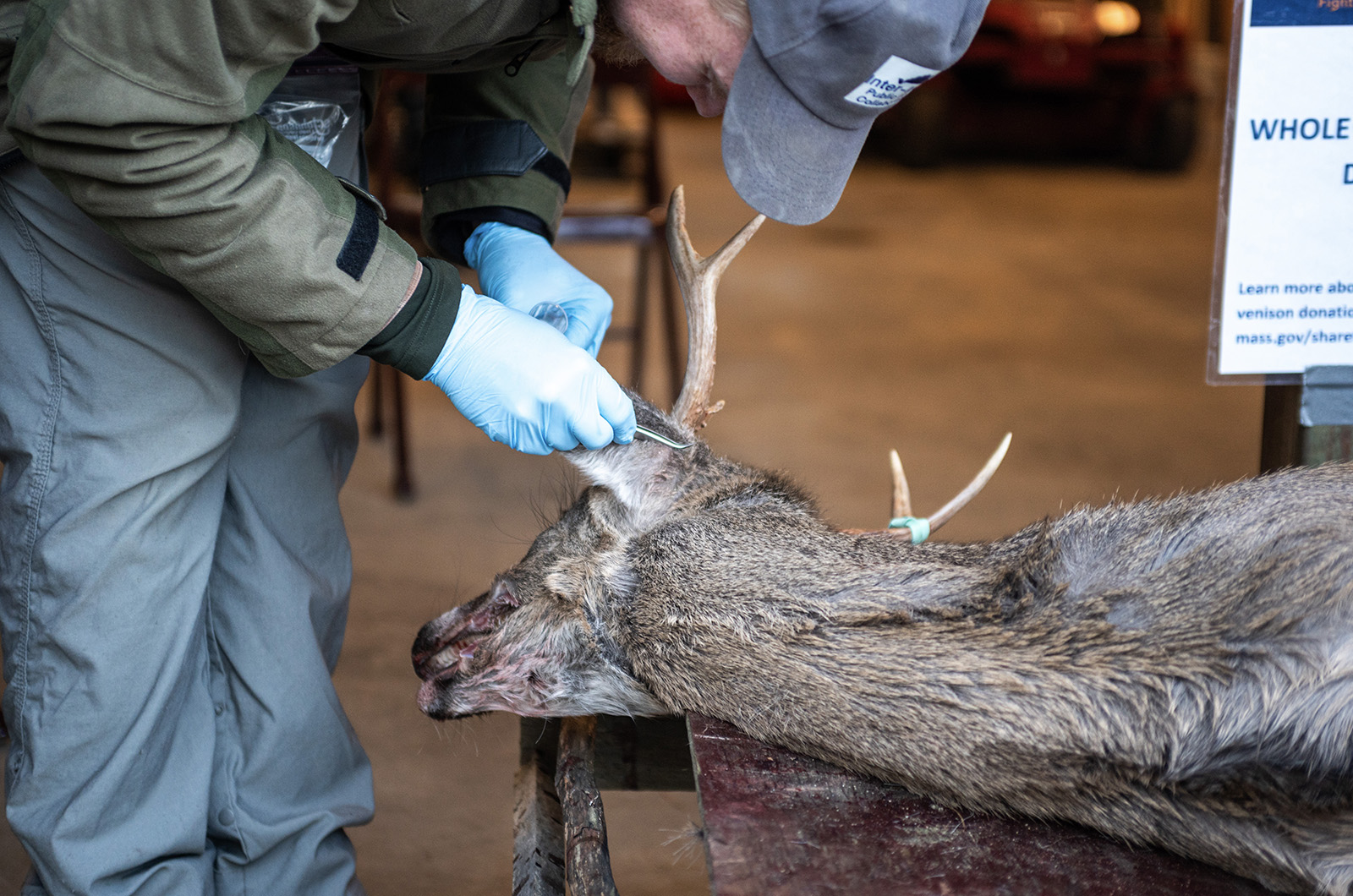The abrupt cancellation of grants by the Trump administration late last month has two public health officials who track diseases on the Island working in limbo.
The U.S. Department of Health and Human Services terminated $11 billion in public health funding starting on March 24, including the grant that paid for an Island public health nurse who oversaw the reporting and investigating of infectious diseases and a Vineyard epidemiologist focused on ticks.
A federal district court judge in Rhode Island last week temporarily stayed the grant revocations after Massachusetts and several other states sued, allowing the work to continue, at least for now.
“We are currently on a paycheck by paycheck basis,” said Marina Lent, the health agent in Aquinnah who has been overseeing the grant.
The Vineyard funding was from the Centers for Disease Control and Prevention and started during the pandemic to help with contact tracing of Covid-19. The grant was later extended and was set to run through the end of June 2026.
In recent years, the Island had expanded the tracing to help with other diseases, such as whooping cough, beefing up the Island’s public health infrastructure, said Ms. Lent.
This was designed to help prepare for the potential outbreak of other diseases, including tularemia, bird flu and measles.
“We want to be well-prepared,” Ms. Lent said. “We don’t want the lessons learned to be lost.”
The two employees affected are Betsy VanLandingham and Lea Hamner. Ms. VanLandingham, a former nurse at the hospital, tracks and investigates infectious diseases on the Island.
“I’m the one person on Martha’s Vineyard who is investigating all the infectious diseases that are happening on the Island,” Ms. VanLandingham said. “It’s trying to make the public safer and trying to stop the chain of infectious diseases.”
Ms. Hamner is an epidemiologist who has been tracking the rise of tick-borne illnesses on the Vineyard, and she has been working to get more research done on maladies such as alpha-gal syndrome.
The funding, about $130,000 a year, being suddenly taken back jeopardizes the momentum and improvements that have been made in disease tracking on the Island, Ms. Hamner said. Because the Vineyard is a small, contained Island, the research around tick-borne illnesses here is especially helpful to getting a better understanding for nearby communities, she said.
“To have it abruptly stopped gives us, of course, less time to figure out continuity,” she said.
The U.S. Department of Health and Human Services, now headed by Robert F. Kennedy Jr, decided to pull back the funds because they were allocated for contact tracing during the pandemic.
The funding was terminated “for cause” because “the grants and cooperative agreements were issued for a limited purpose: to ameliorate the effects of the pandemic,” according to a notice cited in the lawsuit from the states. “Now that the pandemic is over, the grants and cooperative agreements are no longer necessary as their limited purpose has run out.”
While the pandemic may have waned, the need for contact tracing to prevent further outbreaks has not, according to Ms. VanLandingham.
“It seemed very unfair and illogical to take away something that was keeping people a lot healthier,” she said
While the court case plays out, the two employees continue to do their work, and are now trying to find funding to keep their operations going into the future. But they are running under the assumption that funding will not be available as previously promised in the upcoming year.
“We are absolutely not counting on fiscal year 26,” Ms. Lent said. “The state is working very hard, they are trying to facilitate how to deal with this without losing any more ground than we have to.”








Comments (8)
Comments
Comment policy »